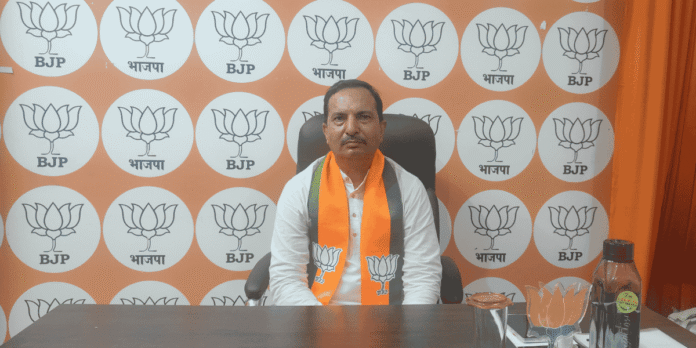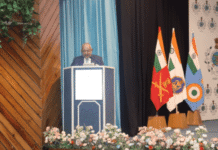The Bharatiya Janata Party (BJP) in the Andaman and Nicobar Islands has stepped up its engagement with the local administration, with its State President Anil Kumar Tiwari meeting the Chief Secretary, Dr. Chandra Bhushan Kumar, to discuss a broad set of issues concerning residents of the islands. The meeting, held on September 4 in Port Blair, reflected the party’s attempt to highlight public grievances directly with the highest-ranking official of the Union Territory administration.
According to details shared by the party, the conversation covered a wide range of matters described as public-centric, though the specifics of each issue were not disclosed. The emphasis, however, was on ensuring that concerns regularly voiced by residents find space in the administrative agenda. The Chief Secretary, who heads the bureaucracy of the islands, is said to have given a patient hearing to the points raised and assured that matters falling within his jurisdiction would be addressed promptly. For issues requiring intervention at the Union government level, he reportedly assured that these would be taken up through the appropriate channels.
The meeting carries significance in the backdrop of ongoing debates on development, infrastructure, and welfare delivery in the islands. The administration, balancing the dual responsibilities of governance and implementation of central policies, often encounters competing demands. By engaging with the Chief Secretary, the BJP leadership in the territory has positioned itself as a conduit for local concerns, reflecting both the party’s role in the political landscape and its intent to maintain visibility in governance conversations.
Public interaction with the bureaucracy has historically been mediated through elected representatives or advocacy groups. However, in the absence of a legislative assembly in the islands, political parties often serve as the primary link between residents and the administration. In this context, the BJP’s move to highlight issues at the highest bureaucratic level indicates an effort to remain responsive to grassroots feedback. Though the press statement did not specify the matters discussed, common concerns in recent years have included healthcare infrastructure, education facilities, employment generation, and connectivity challenges across remote islands.
The assurance given by the Chief Secretary underscores the administration’s willingness to engage constructively with political stakeholders. Such assurances, if translated into timely action, can improve public trust in governance mechanisms. However, the real test lies in the follow-up measures and whether they deliver tangible benefits to residents. The issues requiring escalation to the Government of India are likely to involve policy-level decisions or large-scale funding support, particularly in areas such as transport infrastructure, healthcare expansion, and energy projects.
Observers point out that the timing of the meeting, shortly after the announcement of major national economic reforms like the new GST structure, adds a layer of political context. The BJP, as the ruling party at the Centre, may seek to ensure that national policies are integrated with local needs. At the same time, the local leadership must balance expectations of residents who look for quicker resolution of day-to-day challenges. The assurance of “earliest possible action” given by the Chief Secretary will therefore be closely monitored by stakeholders.
For residents, the outcome of such meetings is usually measured not in statements but in administrative decisions that affect their lives. Whether it is improving hospital facilities, addressing shortages in critical services, or tackling connectivity hurdles faced by remote islanders, effective implementation will determine the credibility of the engagement.
By choosing to publicise the meeting, the BJP has also sent a message of accountability to its support base. Highlighting discussions with the Chief Secretary signals an effort to translate political representation into administrative responsiveness. For the administration, the meeting serves as an opportunity to demonstrate openness to political inputs, even in the absence of an elected local legislature.
As the islands continue to balance their strategic importance with the everyday challenges of governance, interactions such as this one between political leaders and bureaucratic heads will play a role in shaping the trajectory of development. Residents will now watch for how swiftly assurances turn into concrete measures and whether the concerns raised in the meeting result in visible change on the ground.





